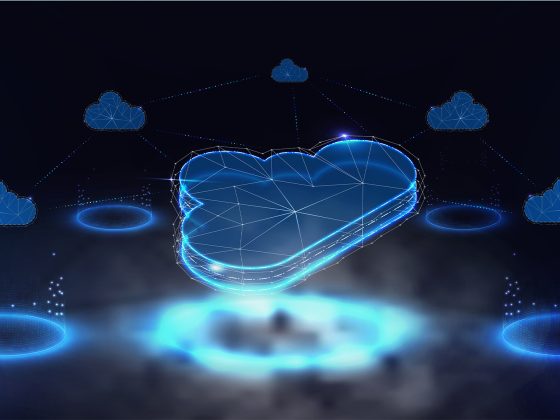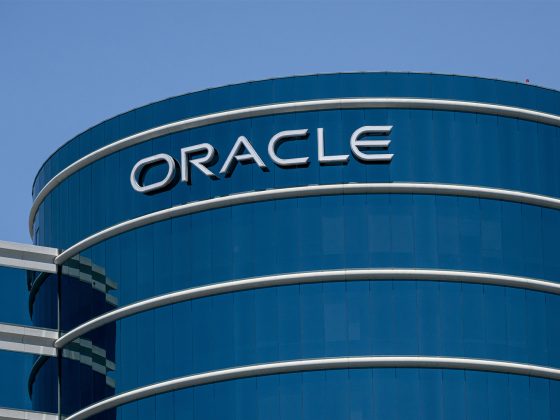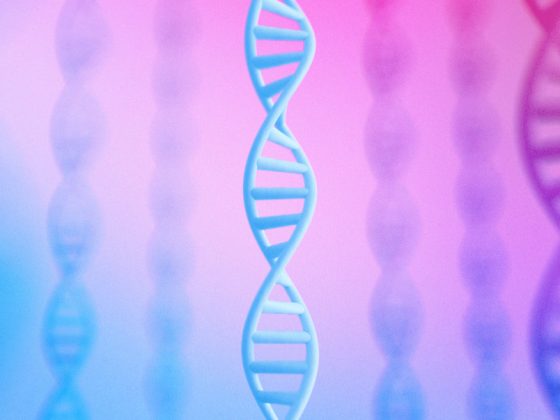Bringing people together with immersive connections
Over the past few years, we’ve re-imagined Google Meet to bridge the gap between people working from different locations. We’ve done this by delivering new experiences that create immersive connections to make video calls feel just as engaging as an in-person meeting. We’ve added new features like automatic lighting adjustment and noise reduction to put this vision into the hands of customers, and today we’re announcing:
From our partners:
- Speaker spotlight in Slides collapses the boundary between the story and storyteller in a hybrid world by placing the speaker’s video directly within their content. Availability: Private preview begins later this year.
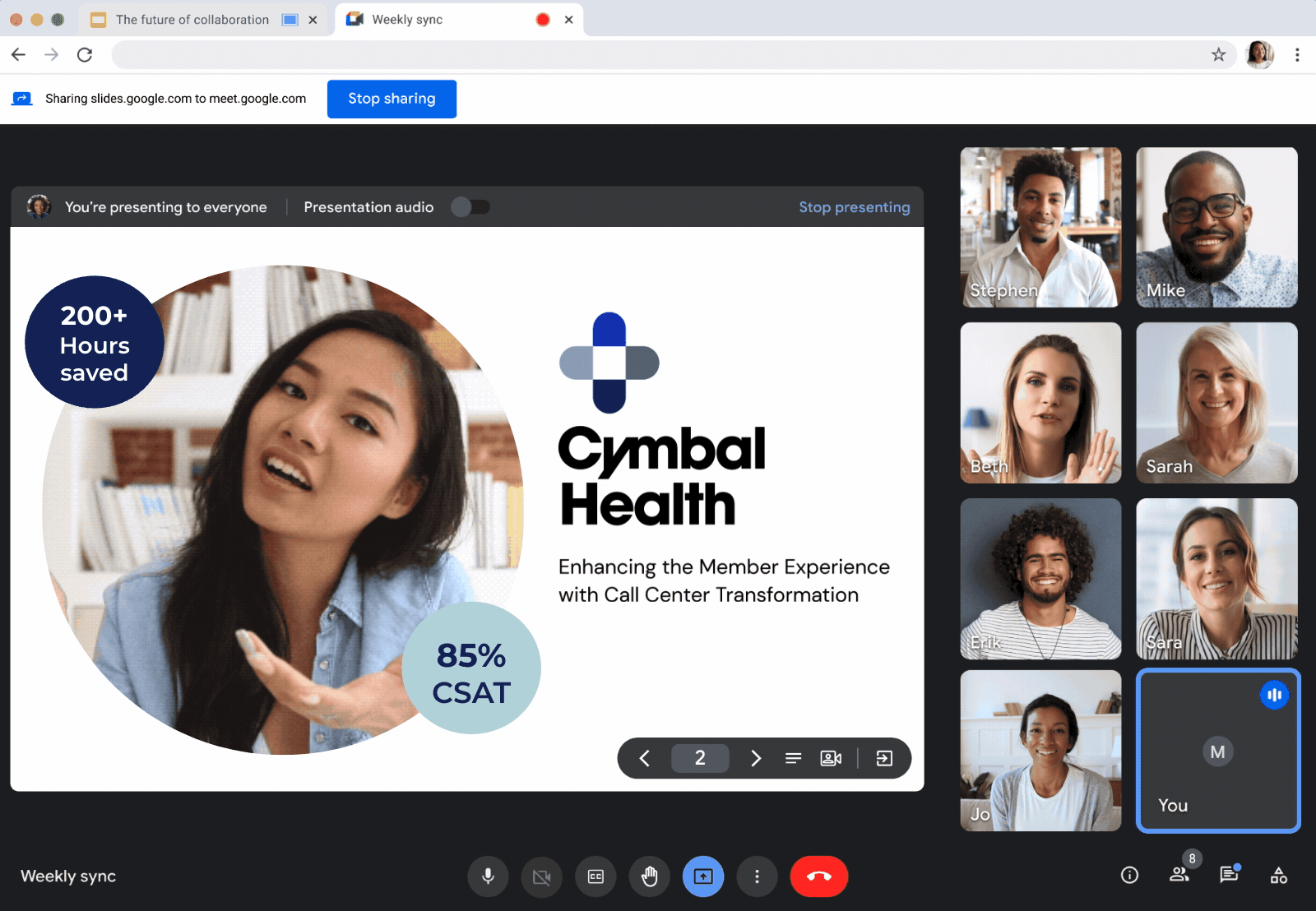
Speaker spotlight brings the storyteller and story together
- Adaptive framing with AI-powered cameras from Huddly and Logitech brings everyone in the conference room into the meeting experience by enabling them to be seen clearly. Huddly is bringing active speaker tracking to cameras on Google Meet Series One devices and introducing an innovative three-camera system to show not only the full room and active speakers — but also the audience reactions — so that everyone, whether online or in the room, has the full context of what’s happening. Logitech recently announced Sight, a dual-camera tabletop unit that works with Meet on Rally Bar and Rally Bar Mini to detect active speakers around the table and accurately frame participants so that the best view is presented in the meeting. Availability: Huddly later this year; Logitech coming in 2023.
- Meeting room check-in lets participants know who is in the room by displaying their names alongside the room in Meet. Availability: Early 2023.
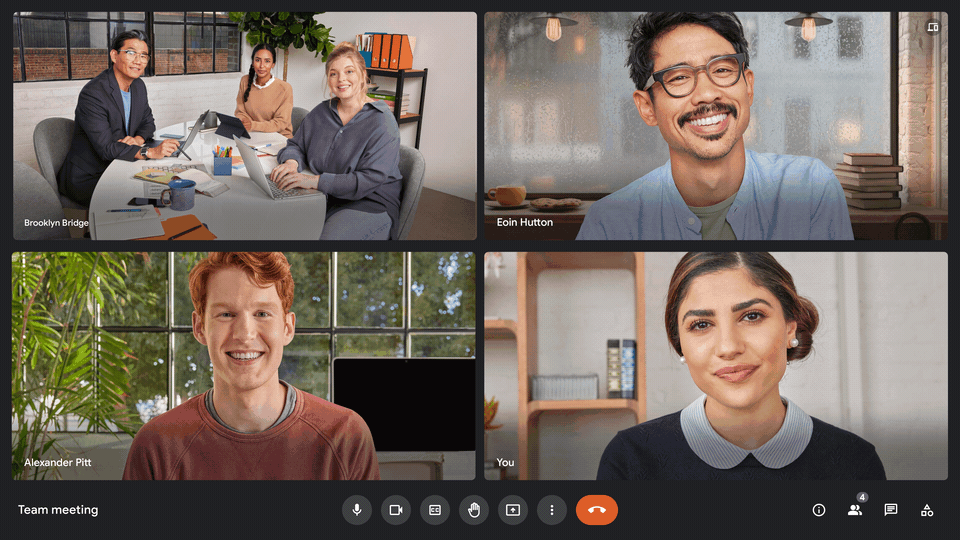
Meeting room check-in lets people know you’re there
- Companion mode mobile as a second screen in Meet gives in-room attendees the ability to fully participate by raising their hand, chatting, or asking questions from their phone while leveraging the in-room audio and video. Availability: Early 2023.
- Assigning conference rooms to breakout rooms in Meet helps manage the logistics for in-room attendees during breakout discussions. Availability: Rolling out this week.
- Automatic video framing in Meet centers participants in their video tile before joining a meeting and lets them manually reframe at any time. Availability: This month.
- Automatic meeting transcriptions in Meet transcribe video meetings and place the content into a Google Doc for later reference. Availability: English transcription is rolling out this week with French, German, Spanish and Portuguese transcription coming in 2023.
- Controlling Slides directly within Meet boosts presenter confidence by allowing presenters to see their audience and content at the same time. Availability: Rolling out this week.
Beyond meetings, Google Chat enables teams to work in real-time or on their own time by providing dedicated spaces for conversations and content. We recently launched discoverable spaces with increased membership of up to 8,000 people, to create new opportunities for connection, community and collaboration. Now we’re announcing:
- Custom emojis and inline threaded conversations in Google Chat enable people to express themselves more authentically and go deeper on specific conversations. Availability: Inline threading this month; custom emojis later this year.
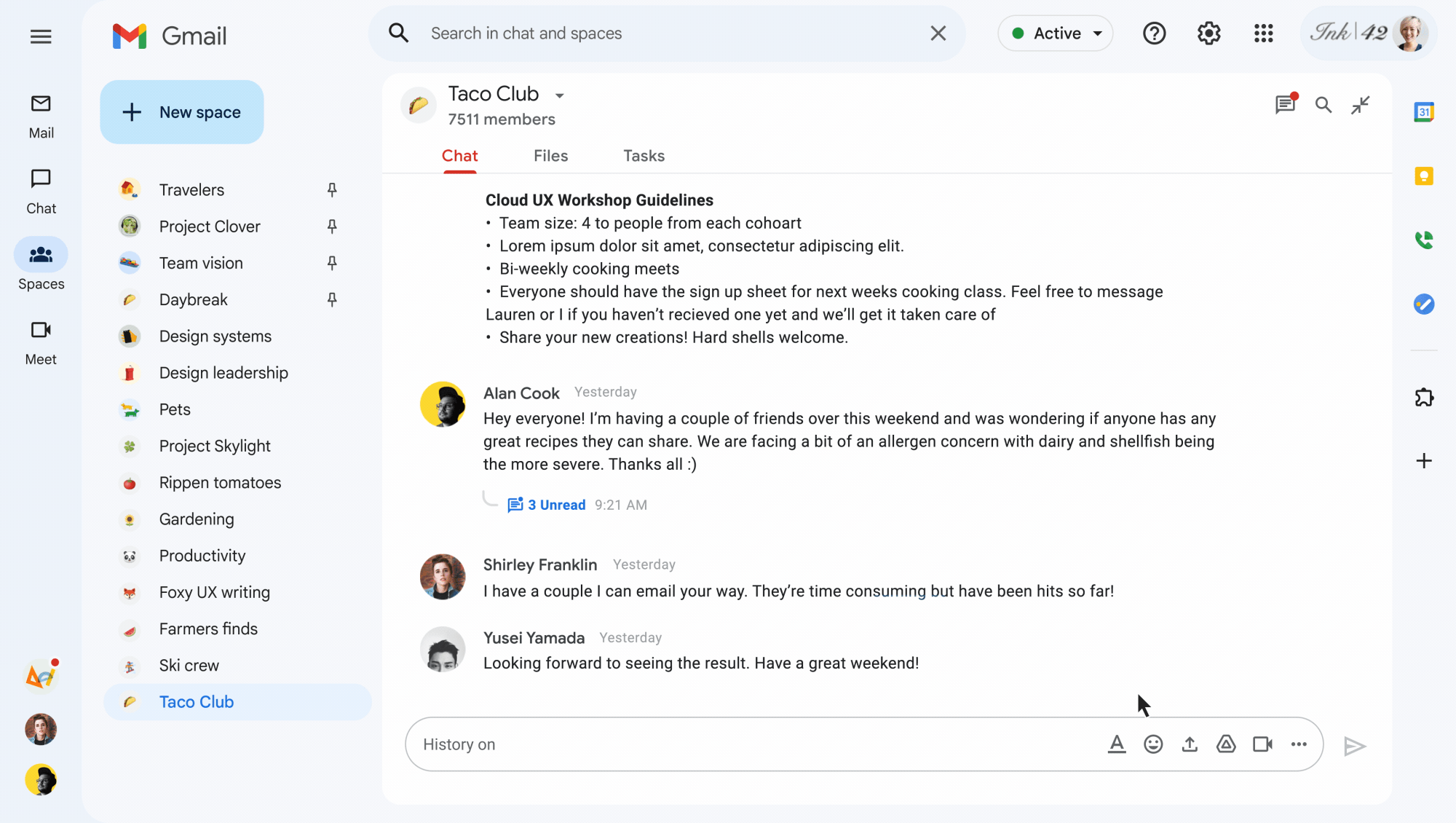
Discoverable spaces, custom emojis and threaded conversationshelp hybrid teams stay connected
- Broadcast-only spaces in Google Chat make it easier for leaders to make broad announcements and maintain connections across their organizations. Availability: Early 2023.
With the move to a hybrid workplace, we’ve seen increased demand for Google Voice, our flexible, cloud-based phone system that untethers organizations from their legacy telephony solutions. This month we’re launching SIP Link in Google Voice, which allows companies to assign and manage phone numbers provided by their telecommunication provider alongside Google-provisioned numbers. This will ease administration and provide advanced features such as spam detection and call routing for those numbers. Availability: Rolling out this week in current Voice geographies; expanding to LATAM later this year.
Collapsing the boundaries between people and apps with smart canvas
Since our earliest days of pioneering collaboration in the cloud, we’ve aspired to help teams co-create and innovate in powerful new ways. With smart canvas, our next-generation collaboration experience, we’ve taken this to the next level. A simple @-mention can bring in recommended people and data from across Workspace, creating a workflow so teams can stay focused instead of switching between apps. Earlier this year, we introduced auto summaries in Docs, pageless format, and new smart chips. Today, I’m excited to share that the smart canvas experience is getting even more powerful with:
- Custom building blocks in Google Docs enable users to build their own reusable components that can be easily accessed with the @ menu. Availability: Later this year.
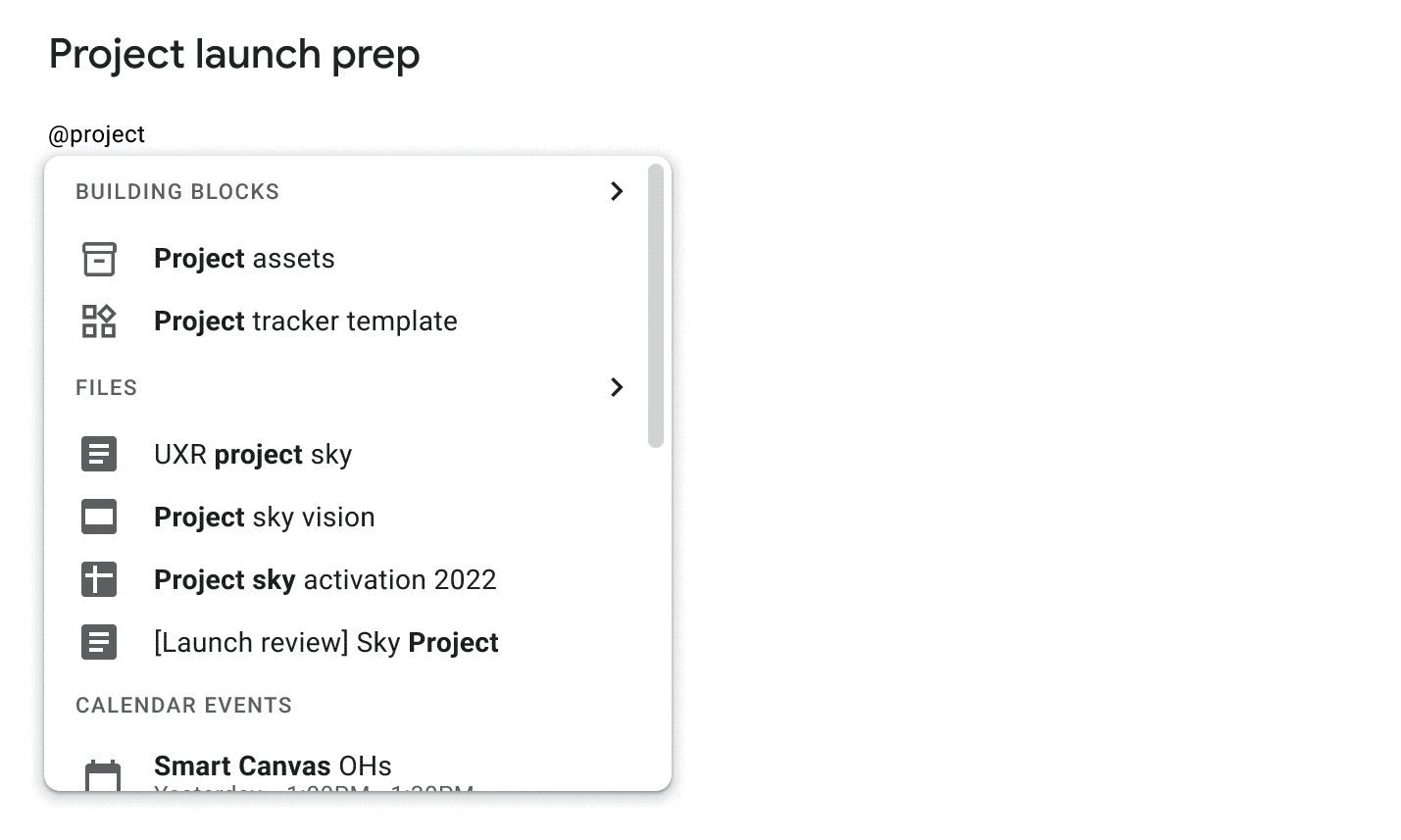
Custom building blocks in Docs enable users to build reusable components for common projects
- Variables in Google Docs enable users to define common data elements in a Doc, such as a client name or contract number, and update it throughout the document by changing the value in one place. Availability: Early 2023.
- Smart chips and a new timeline view in Google Sheets extends the power of smart canvas allowing people to easily pull in people, files, and calendar details. Availability: Smart chips rolling out this week; timeline view later this month.
- Smart chip data extraction lets users quickly populate spreadsheets with important information from chips they use across Workspace. Availability: Later this year.
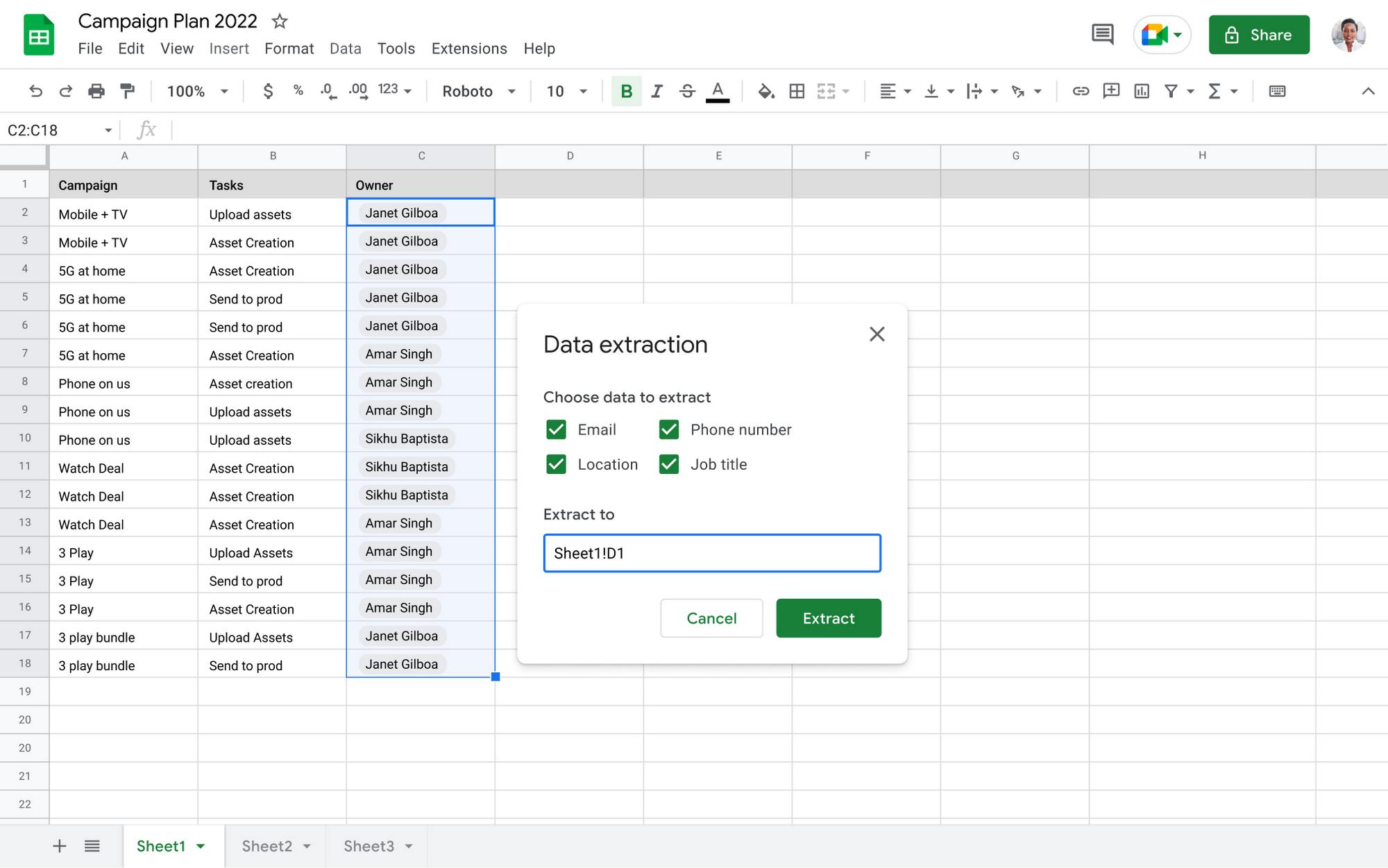
Smart chip data extraction gives quick access to important information
- Smart chips for 3rd-party applications allow users to view and engage with rich third-party data in the flow of work rather than switching tabs or context. New smart chips for AODocs, Asana, Atlassian, Figma, LumApps, Miro, Tableau, and ZenDesk are coming soon. Availability: 2023.
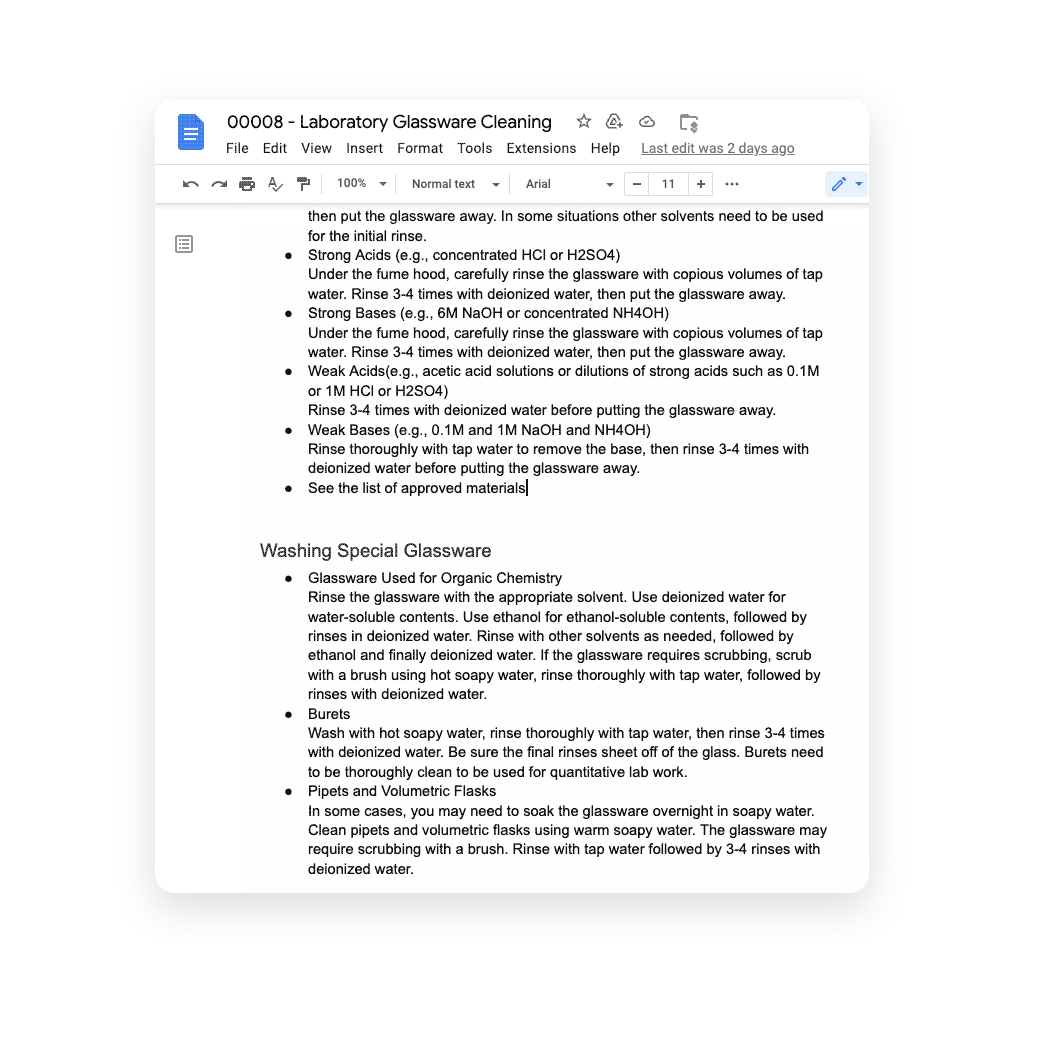
Bring your favorite third party-data into Docs with smart chips
Work safer with Google
There’s a tendency to think that securing people and data in a hybrid environment is more challenging than before. This is true for systems built in the pre-cloud era that have security bolted on and often struggle to scale to meet the threats we face today.
Workspace was born in the cloud and has always been cloud-only. This means our customers benefit from decades of Google’s cloud expertise in threat protection, AI, and global scale. And now we’re extending our advanced data protection controls to keep users and data safe across more of the apps they use everyday.
- Data loss prevention (DLP) for Chat enables admins to create custom policies to help prevent sensitive information leaks. Checks happen in real time and apply a corrective action without the delay that’s standard across the industry. DLP and content compliance is already available in Gmail, Drive, Docs, Sheets, and Slides. Availability: Rolling out this week.
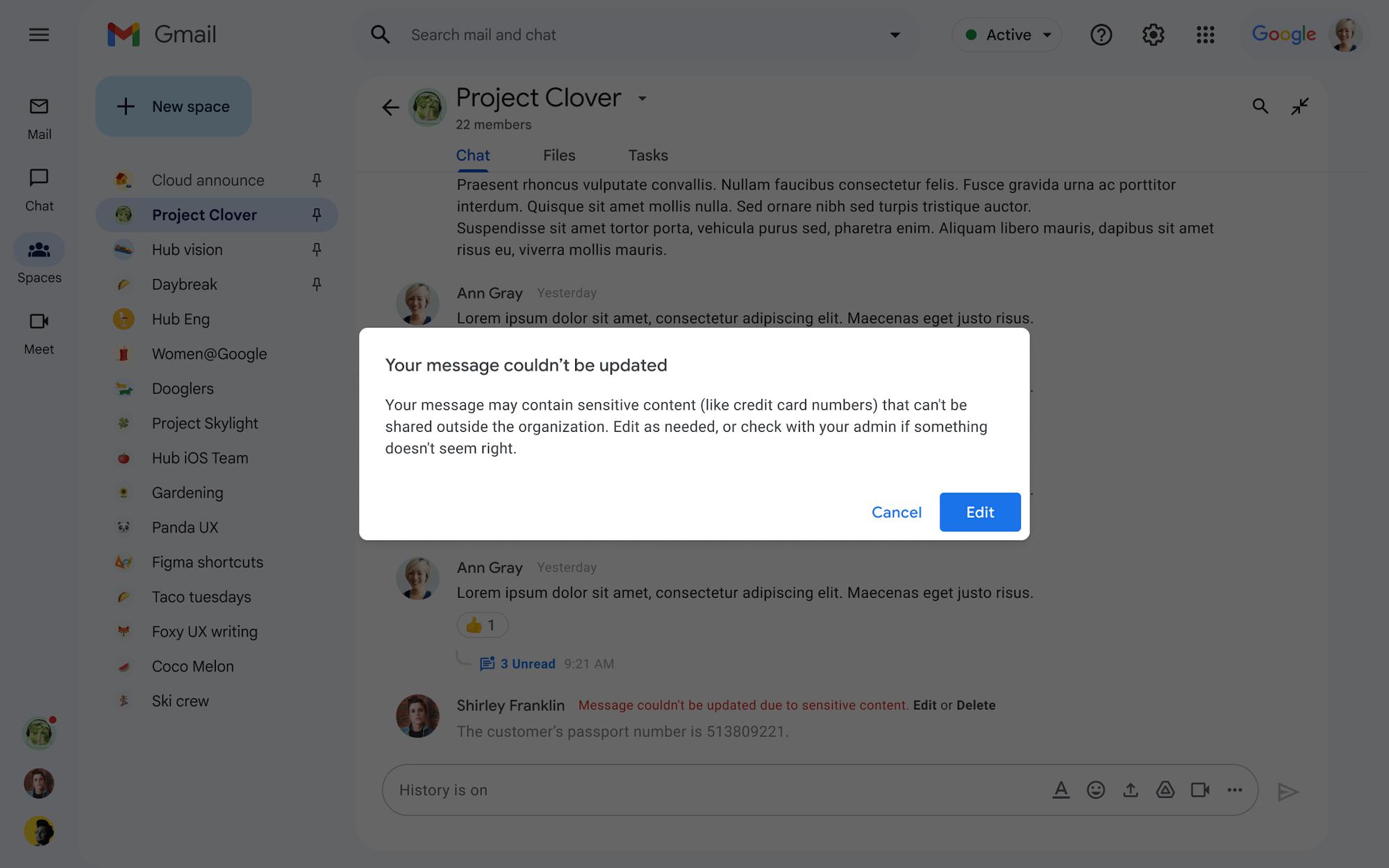
Data Loss Prevention for Google Chat protects against sensitive data leaks
- Trust rules in Drive, currently in beta, will allow for more granular control of internal and external sharing, providing admins more flexibility in establishing collaboration boundaries. Availability: Later this year.
- Client-side encryption (CSE) in Gmail and Google Calendar allows Enterprise Plus and Education Plus/Standard customers to have complete control over access to their data to address a broad range of data sovereignty and compliance requirements. Client-side encryption is currently available in Drive, Docs, Sheets, Slides and Meet. Availability: Gmail later this year; Calendar in preview later this year.
Extending the power of Workspace
We’ve been investing for years in making Workspace the most open and extensible productivity platform for users worldwide. When you connect Workspace to the tools in your broader organization — from no-code apps built with AppSheet to third-party solutions — you extend its reach and power by allowing your teams to stay focused in the digital spaces where they’re already collaborating. Today, we’re excited to be making a number of announcements to fuel this extensibility:
- APIs for Meet and Chat give developers programmatic access to common functions like creating and starting meetings or initiating messages directly from a third-party app. Asana and LumApps will be the first partners to leverage these in their apps. Availability: Early 2023.
- Meet add-on SDK enables developers to embed their app directly into the Meet experience. Figma is one of our first add-on partners enabling teams to collaborate on Figma design and FigJam digital whiteboards directly in Google Meet. Availability: Early 2023.
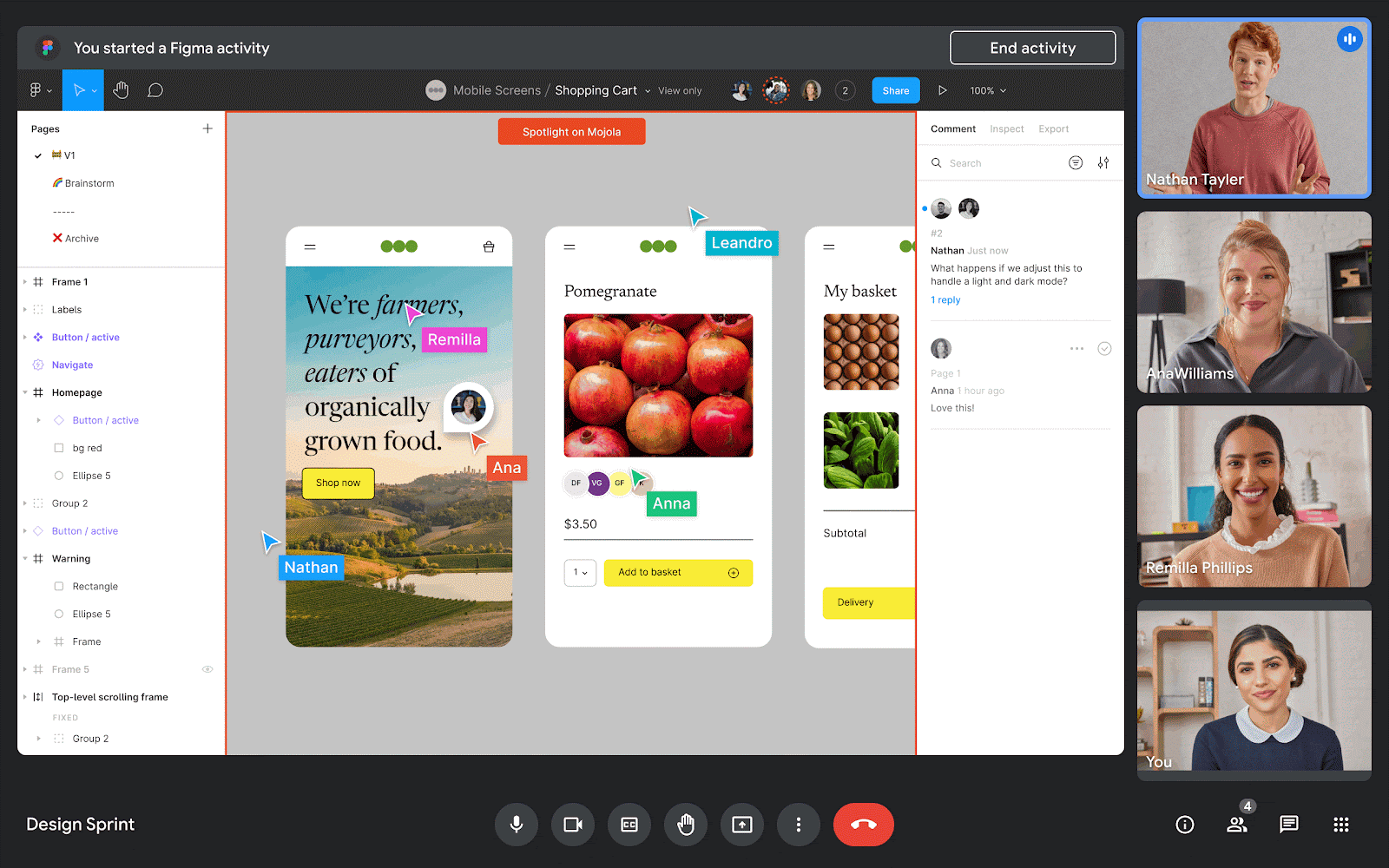
See and hear co-workers as you collaborate in Figma
- AppSheet and Google Chat integration enable people to create and interact with custom AppSheet apps right within Chat. Our low-code and no-code platform lets anyone without coding experience build mobile and web applications quickly. Availability: Early 2023.
Join us at Next and experience the difference
I hope you’ll check out Google Cloud Next ’22, where you can learn more about the latest Google Workspace innovations and, and even better, see them in action. And if you’re ready to jump in, it’s easier than ever before to get started with Google Workspace.
By: Aparna Pappu (GM and Vice President, Google Workspace)
Source: Google Cloud Blog
For enquiries, product placements, sponsorships, and collaborations, connect with us at [email protected]. We'd love to hear from you!
Our humans need coffee too! Your support is highly appreciated, thank you!

